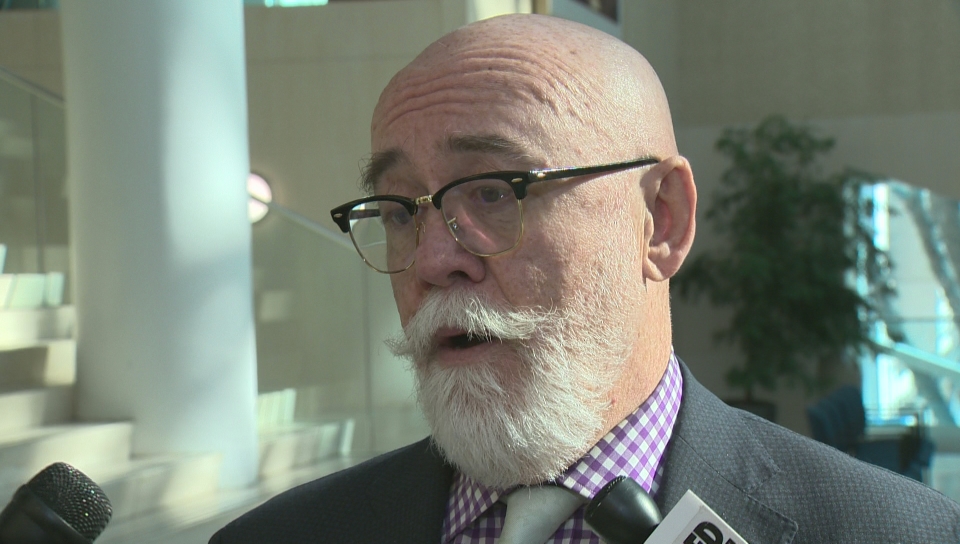The City of Edmonton is looking to create a new zoning category, specifically for supportive housing.

Work on that will continue at Tuesday’s urban planning committee and eventually, after a public hearing, city lawyers and planners will create a new zoning description.
“You will be surprised to hear that we’ve created regulations that are hampering even city efforts on zoning — being able to establish this permanent supportive housing,” said Councillor Scott McKeen.
Currently, Edmonton doesn’t have zoning to allow more than three unrelated people to live together, a department source confirmed to Global News.
“Put it this way; The Golden Girls (characters from a hit TV sitcom) would be illegal in Edmonton,” the source said, pointing out it’s not an issue at large-scale properties like apartment buildings, but building a large single home for a group of individuals is not.
That’s what these next few weeks are about, McKeen said.
“We are looking for ways to clean up the zoning and eventually, hopefully not too long down the road, establish a zone for permanent supportive housing.”
City staff have compiled the numbers. On any given night in Edmonton, approximately 2,000 people do not have a place to call home.
McKeen said it is a crisis because 500 of those people are living rough.
“We know that because of what was happening in Dawson Park up until a month ago,” he said.

Get breaking National news
READ MORE: 486 sleep homeless in Edmonton river valley while shelter beds go unused
Watch below: (From November 2018) Could a legal homeless camp be a solution to a growing problem in Edmonton? One councillor wants to see an interim solution. Vinesh Pratap reports.

Five-hundred more live in substandard housing.
“When you build and staff permanent supportive housing, it can absolutely change the lives of some people who have been living almost feral lifestyles,” McKeen said, citing the $2 million that was spent in 2016 cleaning up homeless camps, with more likely spent doing that this year.
McKeen also quoted research at the Royal Alexandra Hospital, where one out of every two people showing up at the emergency ward is considered to be street-involved or homeless.
City council has already given approval to the city’s Affordable Housing Investment Plan, which commits $132 million over the next four years to stimulate the construction of 2,500 new units of affordable housing.
Nearly $30 million has been dedicated specifically for the acquisition of the land necessary to support 600 new units of permanent supportive housing.
A new zoning category will mean the city will get beyond the rules that have been created that are in the way.
“All housing is for people, and everybody has the right to housing,” McKeen said. “That’s the attitude that we’re starting to take forward. We want to site this properly.
“We don’t want to freak anybody out, and if we do it, well I’m hopeful we’ll get community buy-in around the city.”
McKeen confirmed the new category will either be for permanent supportive housing, or at the very least for assisted living.
“I’m conflicted about that,” he said about the stigma that would come with it. “We make this designation and I find it a little bit upsetting. You are, say an Alzheimer’s or dementia patient, and you’ll be in this assisted-living facility. And we call it something else when you’re in a wheelchair and you’ve been broken by years of living on the streets, but somehow you’re a greater threat or something.
If changes are approved at the July 15 city council public hearing, “streamlined rezoning applications” could be considered by city council in the fall for a number of applications, according to a report heading to next week’s meeting.
After that, administration could immediately begin processing permits. If that happens, developers could start securing financing and start construction prior to the end of the year.











Comments